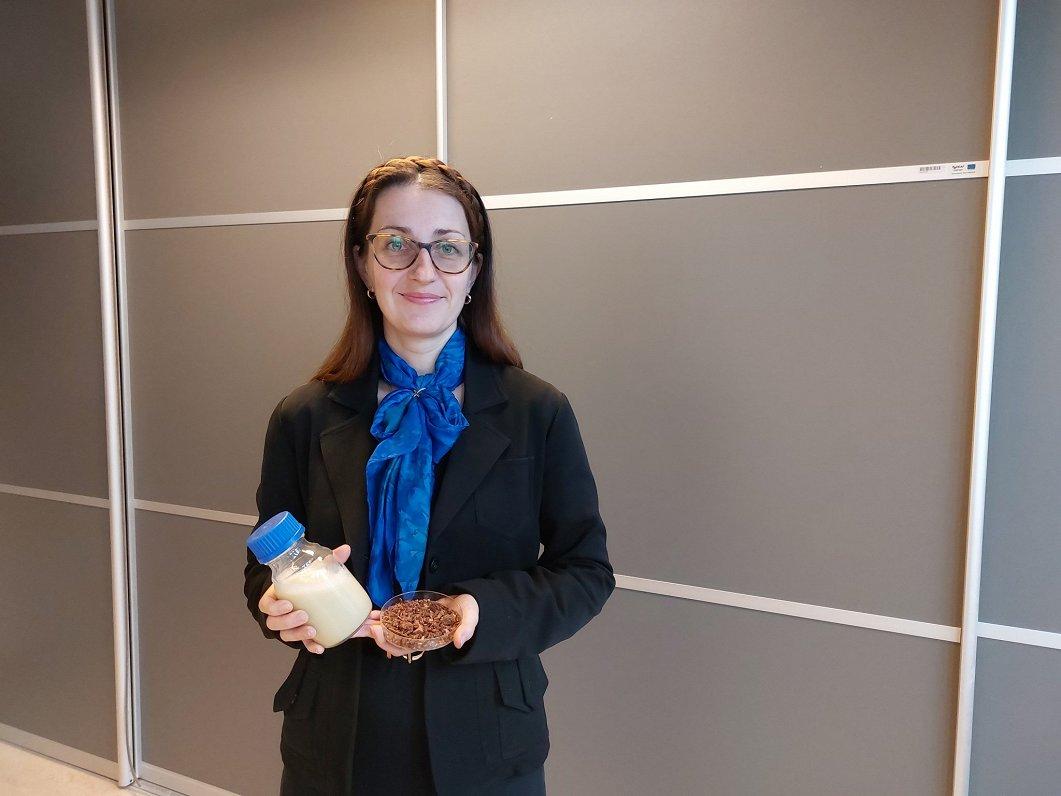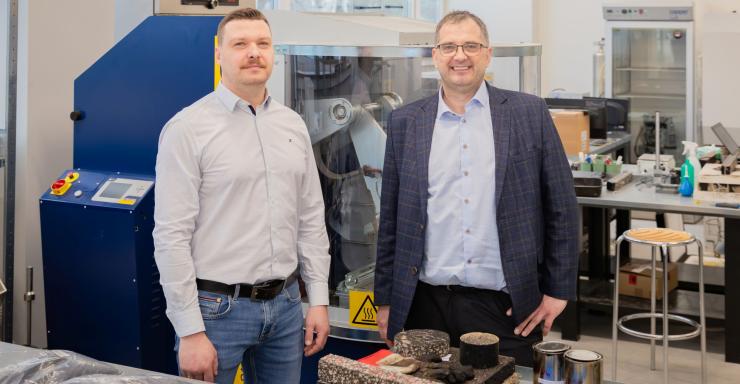Researchers at Riga Technical University (RTU) are developing a thin membrane from propolis that can be widely applied in medicine. The technology is easily adaptable to industrial equipment, and the resulting materials are edible, easy to dose, and suitable for application on wounds. company has already acquired the technology developed during the three-year project and plans to use it in the cosmetics industry.
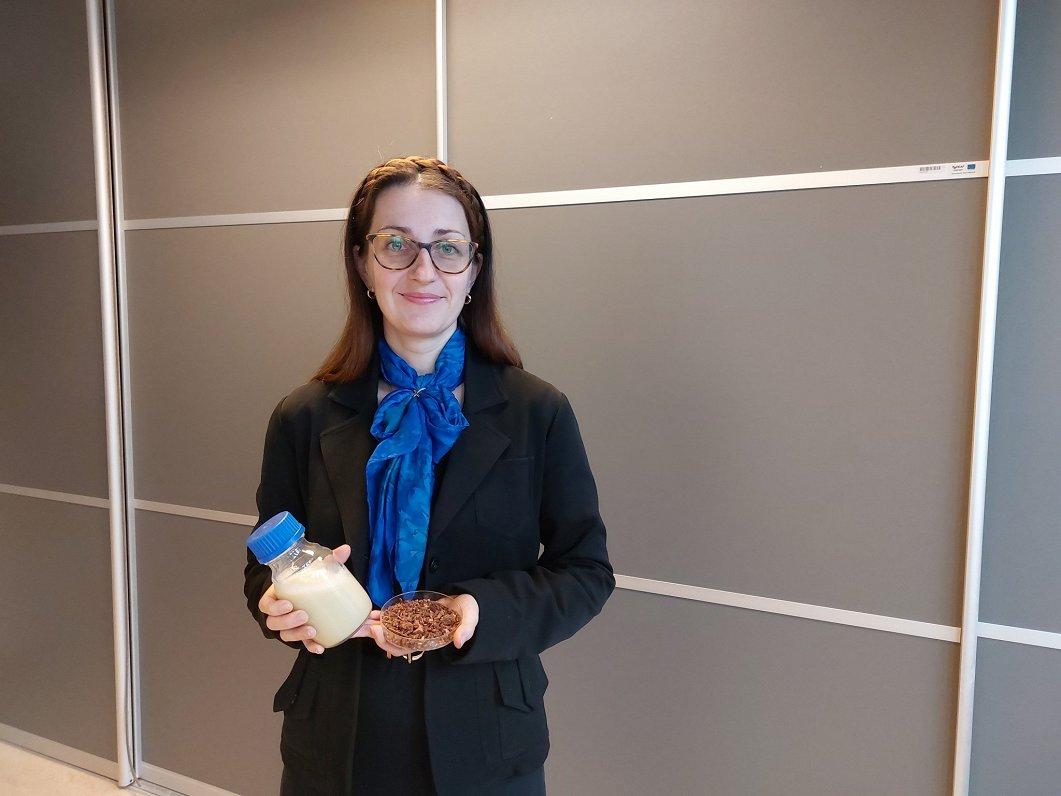
The composition of brown propolis produced by Latvian bees and green propolis collected in Brazil is particularly rich in flavonoids—substances with antibacterial properties—explained Zane Zelča, Leading Researcher at the RTU Institute of Architecture and Design. Currently, propolis (also known as bee glue) is widely used in folk medicine, but researchers have transformed this material into a liquid structure to create a fabric-like material using a special electrospinning method.
“The electrospinning process requires two oppositely charged electrodes. From physics, we remember that opposites attract. So, one of these electrodes is immersed in the spinning solution or coated with it. Then, when voltage is applied, the fibers—initially in the form of droplets and later as actual fibers—are drawn up to the other oppositely charged electrode. As the solvents evaporate, the propolis remains on the electrode in fiber form. It deposits onto the support material, and then we can obtain and remove this sample in the form of a thin fibrous membrane, producing it by the meter,” explained Zelča.
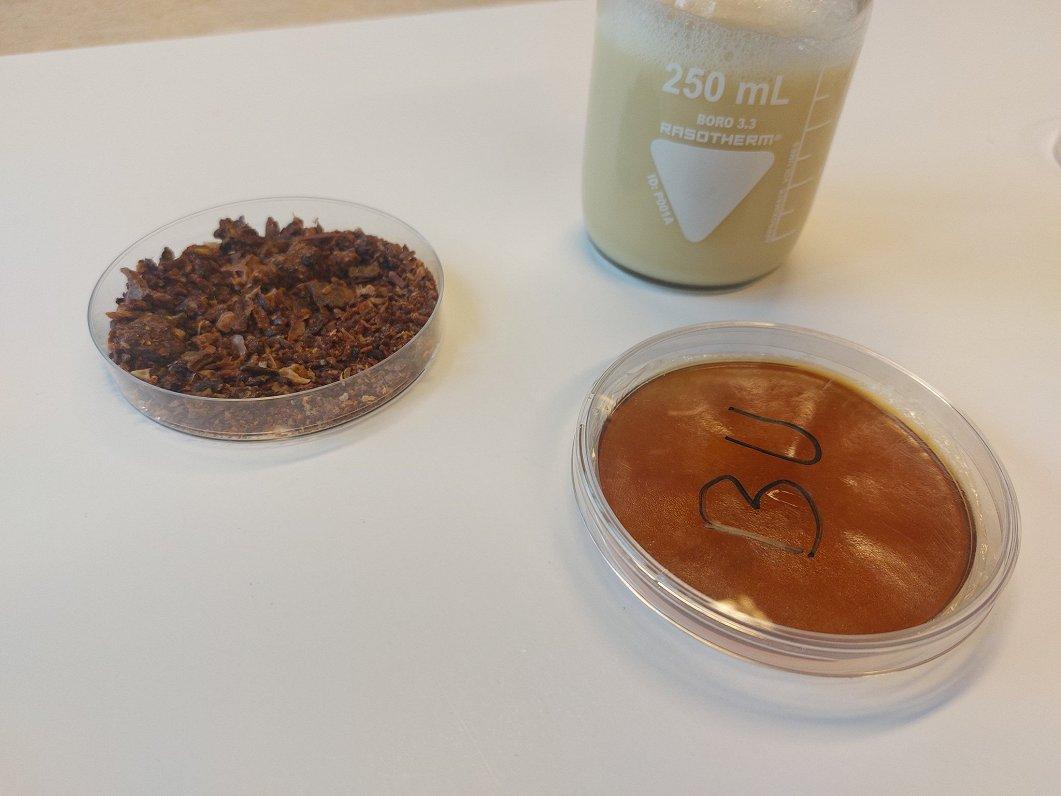
Propolis as a Key Material in the Development of Antibacterial Solutions
The researcher also showed Latvian Radio samples of electrospun propolis membranes created during the study, which can be produced in various thicknesses.
“Depending on how long you spin it, you can get different results. Here’s a lighter sample – you can see, it’s quite crinkly. The color is brownish – this one is made from Latvian propolis. But this one contains a glycerin extract, so it’s already a bit rubbery. Meanwhile, if we compare this electrospun sample with a simple film made from the spinning solution itself, the difference is like night and day. Once we spin it into fiber form, it becomes a porous membrane,” explained Zelča.
The use of propolis in the development of antibacterial and antiviral materials is particularly significant, as it does not promote bacterial resistance to antibiotics while ensuring high effectiveness.
These propolis membranes can be applied in medical, hygiene, and biosecurity contexts.
Zelča gave an example of mucous membrane treatment:
“For instance, if there is painful stomatitis on the gums, where it is difficult to apply propolis extract because saliva washes it away quickly, you can apply such a small membrane directly to the sore area. Or if there is a burn on the mucous membrane, it adheres very well, dissolves slowly, and the active substances can take effect. So one field of application could indeed be mucous membranes, where a microenvironment is needed for healing.”
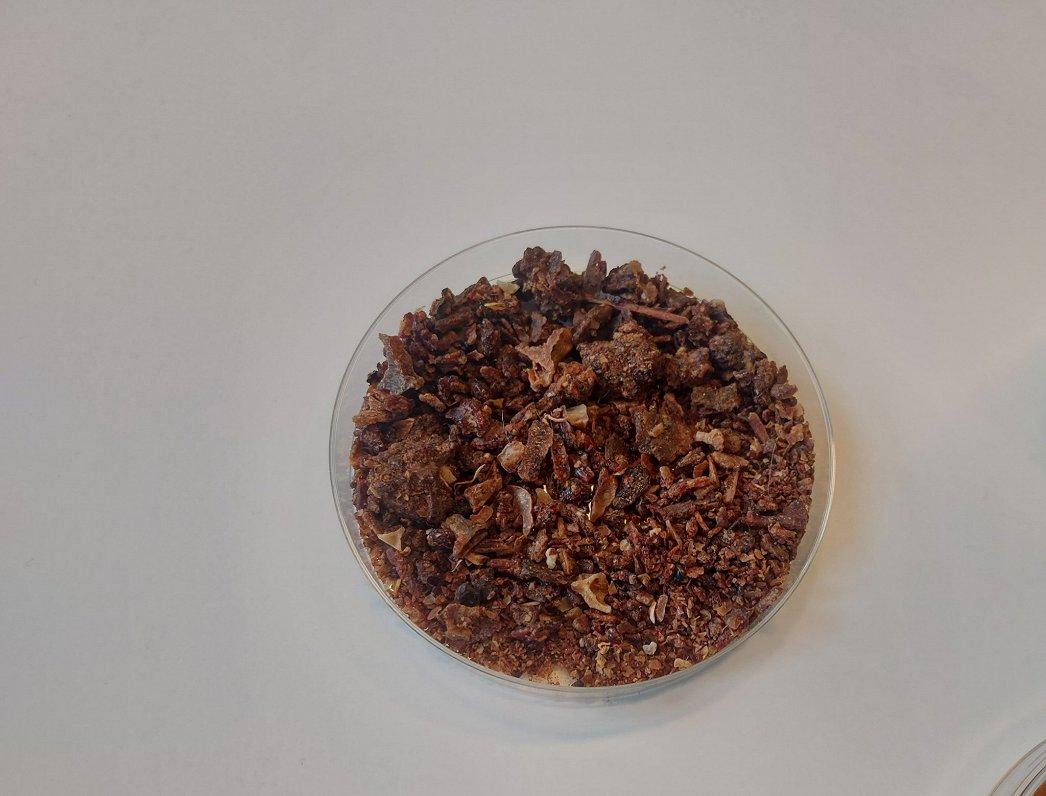
The propolis microfiber membranes developed by RTU researchers have also attracted interest from companies.
SIA Amodera Lab has signed a licensing agreement with the university for the rights to use the electrospinning method, which the company plans to apply in the cosmetics sector.
Researcher Zelča noted that the licensing of this technology is a tangible outcome of years of work:
“The very method for obtaining propolis microfibers is patented and will be transferred to a company with long-term plans. The method is already well adapted for industrial production. Let’s put it this way: three years of work have resulted in something that will actually be needed, rather than remain on a laboratory shelf. That is truly gratifying.”
She added that the company plans to test the technology specifically for the production of cosmetic facial masks, while other possible applications are also being considered — for example, as dietary supplements, since the material is also edible.
